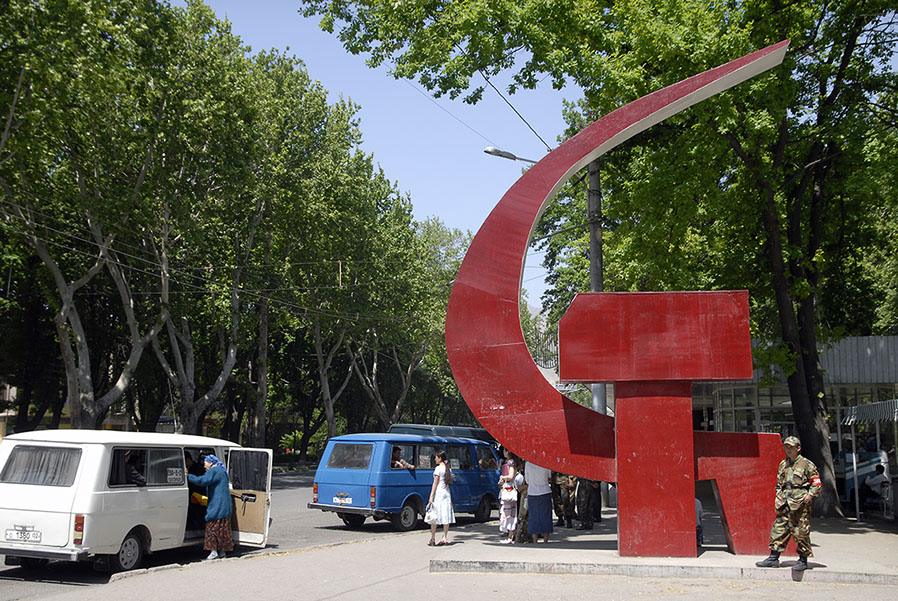 Princeton Conjunction – 2016
Princeton Conjunction – 2016
An Annual Interdisciplinary Conference
May 13-15, 2016
Princeton University
In a 2001 issue of the journal PMLA, David Chioni Moore asked: “Is the Post- in Postcolonial the Post- in Post-Soviet?” Answers to this important question have come in many forms during the last fifteen years, and the tentative equation between the two has also been significantly extended: post-Soviet and postcolonial are routinely lumped together with postmodernist, and post-totalitarian; just as the “soviet” has with the “colonial.” Yet these “posts” did not sit comfortably together; their apparent family resemblance has not yet merged into a productive and convincing framework either for analyzing socialism as a form of colonial practice or for understanding post-soviet as post-colonial.
This interdisciplinary conference aims to review successes and failures of the dialogue between the postcolonial theory and postcommunist studies, which has been taking place in the former socialist countries. We invite scholars to approach the alleged postcolonial condition of postcommunist Europe and Eurasia not only as a break from the colonial past, but also as a method of retrospective reflection, and a form of an intellectual exchange. To what extent can postcolonial studies of the communist experiment be seen as a product of intellectual transfer or conceptual mimicry? Do those studies merely graft the postcolonial argumentation and narration developed for the diverse cases of South Asia, Latin America, or South Africa onto the no less diverse traditions, experiences, and concerns of postcommuinist societies? Given the impact that Marxism in general and the work of Antonio Gramsci in particular had on the formation of postcolonial theory, how should we interpret the wholesale rejection of the leftist legacy by postcolonial scholarship in the region? Why do the anticolonial studies produced in, and of the region tend to privilege the history of the national elites, marginalizing even further the experience of the colonized and the suppressed? What are the analytical and interpretive benefits and pitfalls of postcolonial anti-communism that has been emerging gradually after the collapse of communism? Will political conservatism, aesthetic traditionalism, and romantic nationalism remain the key contributions of this anti-communist postcoloniality?
We encourage theoretically rigorous exchanges that scrutinize the history of intellectual exchanges between different sites of postcolonial thinking worldwide, and the approaches, methods, and concepts that emerge in the spaces of postsocialism. In particular, we are interested in examining those points of conceptual divergence and conceptual intersection between the postcolonial and postcommunist studies deriving from the different forms of inequality that industrial capitalism and state socialism produced. Did these two forms of socio-political and economic organization create comparable configurations of (post)coloniality, with similar structures of colonial subjection and anti-colonial resistance? Or, were there distinctively socialist genealogies of subalternity that the processes of radical economic modernization in the USSR and the socialist bloc created? Which narratives and voices were strategically excluded during the formation of the allegedly classless society of socialist countries? Which narratives and voices have been strategically excluded now, as postsocialist states undergo rapid nationalization? Could we find the same dynamic of “domination without hegemony,” as Ranajit Guha discerned in the case of colonial India, or was the asymmetry of power between the “colonial” and “imperial” elites negotiated differently under/after socialism?
The program committee:
Serguei Oushakine, Chair (Princeton)
Tarik Cyril Amar (Columbia)
Edyta Bojanowska (Rutgers)
Michael Kunichika (Institute for Advanced Study, Princeton)
Ekaterina Pravilova (Princeton)
The annual conference is organized by the Program in Russian, East European, and Eurasian Studies and made possible by the generous funding from Princeton’s institutions.
